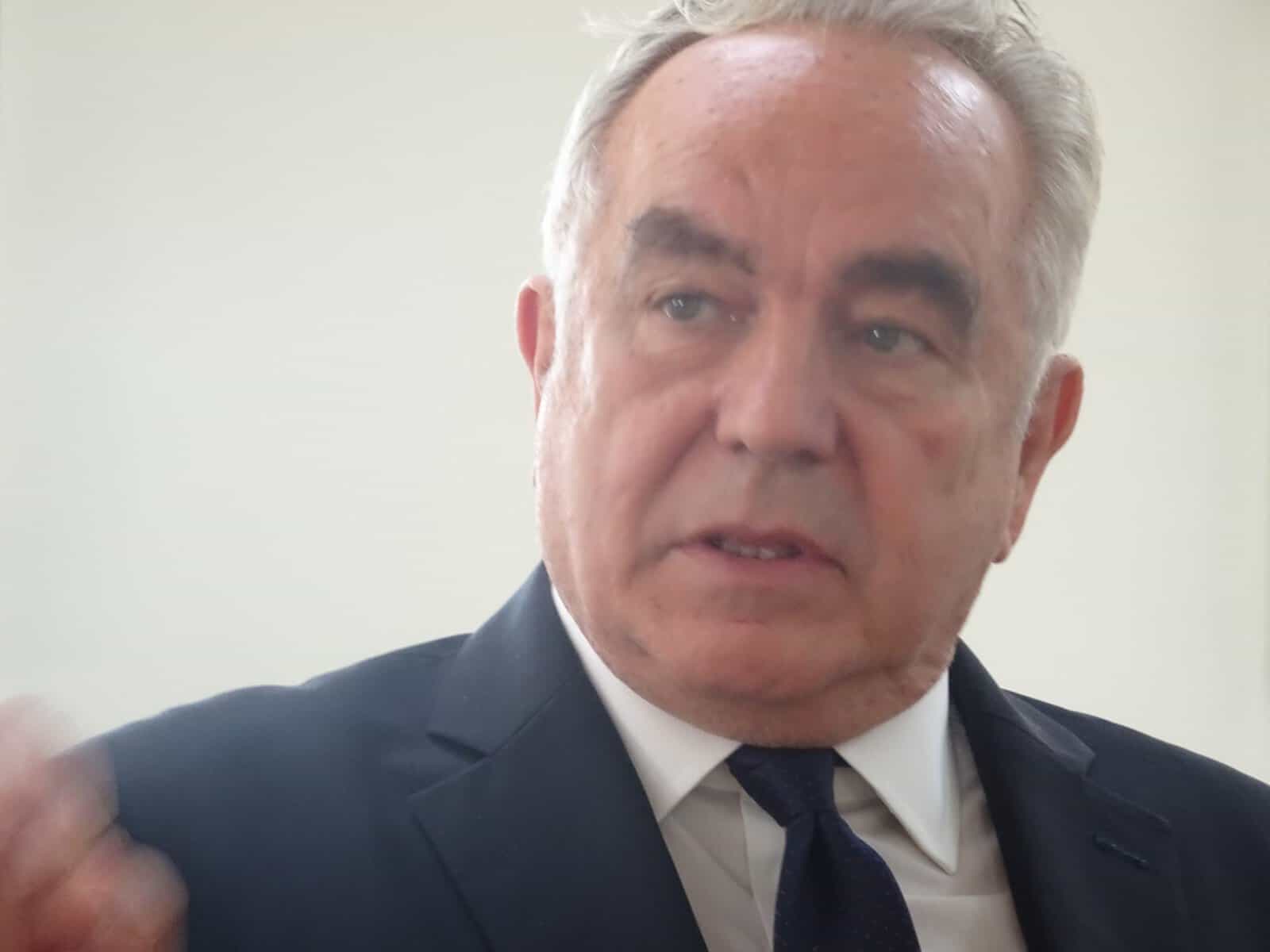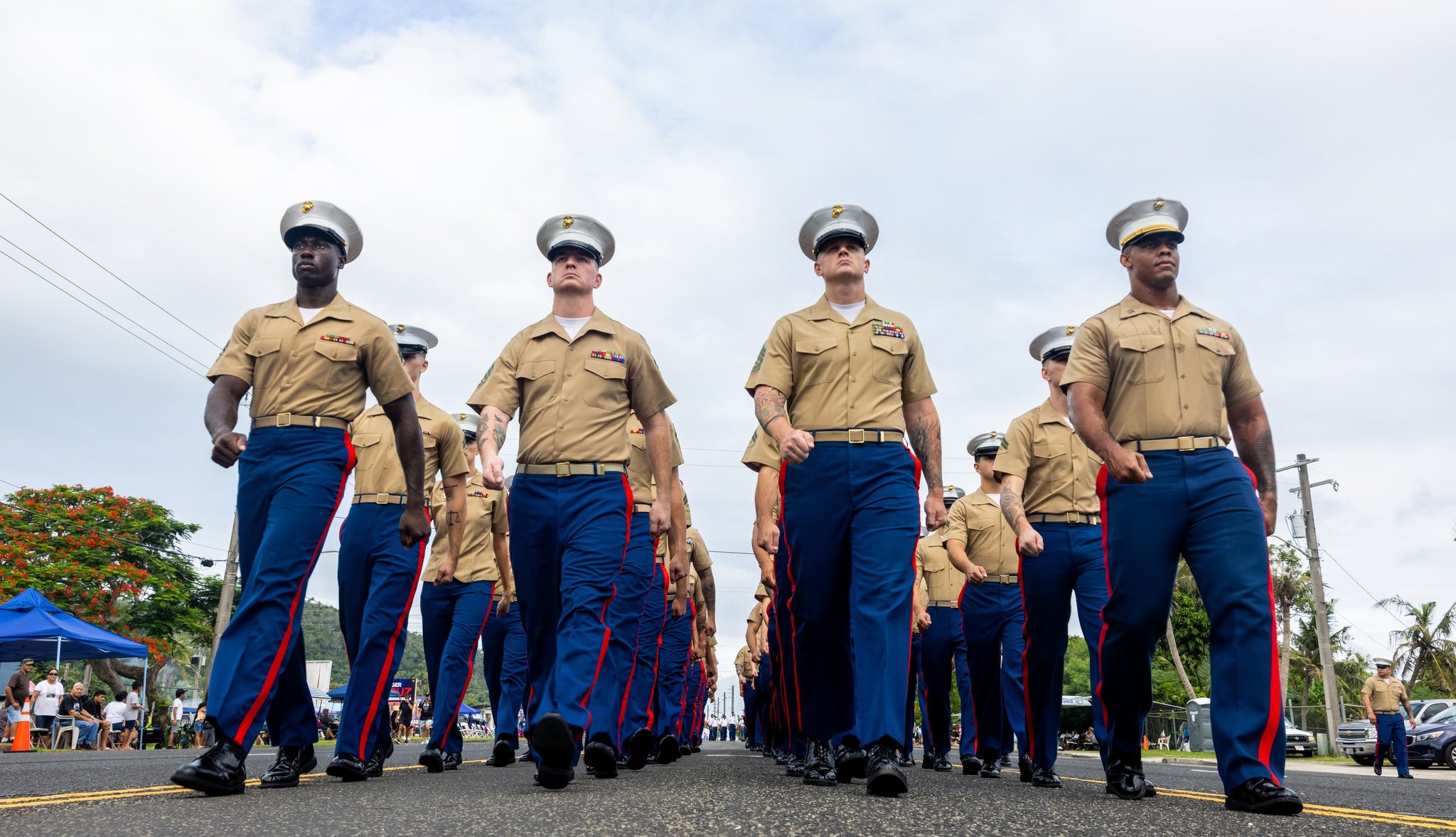“Across the board, if you look at the nature of our step up in every arena, it is unmistakable, it is fulsome, it is deliberate and it will continue.”
`-Kurt Campbell
As Pacific leaders gather in the Kingdom of Tonga for the 53rd Pacific Islands Forum, US Deputy Secretary of State Kurt Campbell wants them to know that the United States is ramping up its activities in the region.
Campbell heads a large US delegation attending this week’s regional summit in Nuku’alofa. He joked that he was accompanied by “a rugby team worth of talent on the US side, and we’re all thrilled to be here.”
To meet with the 18-member countries of the Forum, Campbell is joined by the US Envoy to the Pacific Islands Forum Ambassador Frankie Reed; Assistant Administrator of the USAID Bureau for Asia, Michael Schiffer; Sarah Morgenthau, Special Representative for Commercial and Business Affairs; and Rear Admiral Sean Regan, Commander of the Fourteenth Coast Guard District (responsible for operations in Hawai’i, Guam, the Commonwealth of Northern Mariana Islands and American Samoa).
“We’ll be rolling out initiatives adding to what we think is a substantial step-up over the last couple of years,” Campbell said. “It’s an exciting time and we believe that we’ve listened carefully to the leadership of the PIF and individual countries, and we’re trying to target our contributions directly towards what we’re hearing from them.”
Amongst a shopping list of commitments from different US departments, agencies and military groups, the US delegation in Tonga highlighted a new US$50 million micro-finance program for micro, small, and medium-sized enterprises; and a US$3.6 million program to bolster local, provincial, and national disaster preparedness throughout the Pacific region.
With welcome news for Tongans hoping to visit family in the United States, Campbell announced that the new US Embassy in Tonga will soon have consular staff to issue visas: “We’ll be opening our visa window downstairs, and that’s big news for us because it really allows us to help facilitate more tourism and more business engagement between Tonga and the United States.”
Climate pledges
In past years, US delegations arriving as Dialogue Partners at the Forum have outdone China in wolf warrior diplomacy (the 2018 bombast of Secretary of the Interior Ryan Zinke in Nauru in 2018 stands out, though his pledges of commitment to the “Pacific theatre” were undercut by the Trump administration’s decision to withdraw from the Paris Agreement on Climate Change).
Under President Joe Biden, the United States has transformed its regional diplomacy, with new partnership strategies and two US-Pacific summits at the White House in 2022 and 2023.
In recent years, US delegations to the annual Forum have put greater emphasis on programs around climate, oceans management and economic development, and this year is no exception.
“USAID has sought to redouble our work over the past several years,” said USAID’s Mike Schiffer. “Last year we opened our new regional mission in Suva, Fiji and a country representative office in Port Moresby, PNG. We aim to have up to 50 people in the field by the end of next year, so we can show up in this region.”
“At this week’s Forum,” Schiffer said, “we’ll be announcing a big new climate finance initiative, given the historic and existential challenge in this region, to be able to meet adaptation, resilience and other needs on climate change.”
For five years, the US operated the ‘Climate Ready’ initiative with US$25 million leveraged to mobilise extra funds for public, private and philanthropic partnerships. To continue this work, Schiffer said, “there will be a new initiative called ‘Climate Ready for Big Ocean State Sustainability’ or ‘Climate Ready BOSS’, another five-year US$40 million commitment climate finance mobilisation initiative.”
Ironically, Pacific island countries usually describe themselves as ‘Large Ocean States’ rather than ‘Big Ocean States’, but a program called ‘Climate Ready LOSS’ might remind people of loss and damage from climate change. Small Island Developing States have fought for years to establish a Loss and Damage Financing Facility, even as the US and other OECD states fought against legal liability for many years. At COP28, the US government finally announced a $17.5 million pledge to the new loss and damage fund – a tiny amount given the scale of US carbon emissions.
This week, Deputy Secretary Campbell also announced that the United States intends to provide an additional US$20 million to the Forum’s new Pacific Resilience Facility. While welcomed by Pacific leaders, it’s a small sum compared to last year’s $50 million donation from Saudi Arabia and $100 million pledged by Australia.
Will the US deliver on pledges?

The other sting in the tail is that the US pledge to the PRF is “pending Congressional notification and completion of domestic procedures.” Given the dysfunction of the US Congress, the hostility of the Republican Party to climate action and the looming Presidential election, that’s a significant proviso.
In the 2022 midterm US congressional elections, the Republican Party won a narrow majority in the US House of Representatives. Since that time, Biden administration efforts to respond to the many climate priorities of Pacific island states have been blocked by the so-called Freedom Caucus. Since 2022, the US Congress has repeatedly rejected Biden administration budget pledges to commit funding to the Green Climate Fund and derailed the President’s 2021 commitment that “the United States would deliver US$11.4 billion annually by 2024 to help poor countries rebuild and adapt to the economic damage inflicted by climate change.”
Recent delays in implementing other US funding pledges for Micronesia have highlighted this problem.
Last year, for example, the US government finalised eight agreements to revise the Compacts of Free Association (COFA) with the Federated States of Micronesia, Republic of Palau and Republic of the Marshall Islands (RMI). Once again, dysfunction in Washington undercut the achievement. For six months after October – the start of the FY2023-24 financial year – the US Congress failed to pass legislation that would begin the transfer of the US$7.1 billion dollars pledged to the three Compact States over the next twenty years (a trivial amount in the US budget compared to military spending for the Hawai’i-based Indo-Pacific Command).
In a March 2024 interview with this correspondent, RMI President Hilda publicly criticised Washington’s failure to implement longstanding US pledges: “At some point, our nation needs to seriously consider other options available to us if the US is unable or unwilling to keep its commitments to us. Our nation has been a steadfast ally of the United States, but that should not be taken for granted.”
A tranche of the COFA funding was later approved by the US Congress, but the uncertainty and delay left a sour taste. As US analyst Patricia O’Brien noted: “The most recent COFA saga has once again damaged the US image in the region. To some, the COFA saga is proof that despite the alliance rhetoric, Washington is unreliable, and this is on top of deep concerns felt at the prospect of another Trump administration.”
In Nuku’alofa, Islands Business asked Deputy Secretary Campbell whether there was ongoing frustration about delays caused by US domestic politics. Without commenting on the outcome of the current electoral contest, he said that “there’s strong and bipartisan commitment to the Pacific and my hope is that that will continue under any circumstances.”
“In the midst of the most intense blockage in our Senate, the only bill that got through was for the funding of the COFA,” he added. “I think the Pacific leaders should take some heart about the bipartisan commitment to this critical region…You can’t ever make predictions and of course there are always anxieties about American politics, but at the very end we’re proud of our system and we believe that it will yield a leader that is committed to continue our strong engagement in this region.”
China and the region
Beyond the engagement with the Forum, Campbell highlighted wider partnerships to support the US Indo-Pacific agenda: “We’re also seeking to partner and work with countries like never before – traditional partners like Australia and New Zealand, but newer partners like Japan, South Korea, India, Britain and others.”
Since 2018, the US has extended a trilateral infrastructure program with Australia and Japan, which is complemented by the Blue Dot Partnership and corporate partners like Google. Campbell also highlighted work with Australia, New Zealand, Taiwan and Japan on undersea cable connectivity in the Pacific.
He noted that Washington would work with Tokyo to extend programs on the destructive legacies of the US-Japan Pacific war, from removal of unexploded ordnance and a new program where the United States and Japan will jointly act “to deal with the sunken ships at Truk [Chuuk] lagoon in Micronesia. This is a big deal – these ships are starting to decompose and the oil that’s contained in them represent a risk to the corals and the health of the marine environment.”
At a time of strategic competition between the People’s Republic of China and the United States in the region, Cambell responded to questions about Chinese influence in the Pacific Islands with a measured tone.
“We’ve been quite clear that we welcome the support of any country that is committed to the standards of living and the well-being of Pacific peoples and China’s engagement in some of these areas is unobjectionable,” he said. “We do have concerns in certain areas where China has supported undemocratic elements and where we’ve seen abuses in fishing practices. Also we are concerned by the potential for power projection capabilities into a region of peace.”
Despite suggestions of co-ordination with China on development activities in the islands, at the same time the United States has been expanding military and security programs in Micronesian countries and territories across the northern Pacific.
In recent National Defence Authorisation Acts, the US military has received significant funding increases for US bases in Hawai’i, Guam and across the Micronesian islands. The Hawai’i-based US Indo-Pacific Command is upgrading naval shipyards; building new airstrips and storage for fuel, munitions and equipment; and deploying B-52H bombers and nuclear attack submarines.
As strategic competition with China ramps up across the region, the Pentagon announced a new Joint Task Force-Micronesia in 2023, to be headquartered in Guam. Led by US Navy Rear Admiral Greg Huffman, the new task force will co-ordinate defence operations across the northern Pacific.
US Marines and their families are relocating from Okinawa to Camp Blaz, a new Marine Corps base opened in January 2023 at Dededo village in Guam. US Marines have been based in the US colony for 125 years, but today, ‘US Marine Corps Forces Pacific’ is the Corps’ largest operational command, comprising two-thirds of active-duty combat forces. As host to key American military installations in the western Pacific, Guam has been dubbed “the tip of the spear”, and also “the forward edge of the Indo Pacific”. The US Department of Defence owns one-quarter of the island’s land mass, with major military installations such as Andersen Airforce Base at Yigo and Naval Base Guam at Apra Harbour, Santa Rita.
The Pentagon openly acknowledges that US bases on Guam are a target if war erupts over Taiwan or the Korean peninsula. China has developed medium range missiles that can reach the island – one weapon is even dubbed “Guam killer” by the US military. In April, the US Missile Defence Authority announced a US$450 million contract for Boeing to manage construction of a 360-degree “Guam Defence System” at 20 sites around Guam.
Despite this week’s new announcements, Micronesian leaders fear that the strategic competition with China is driving Washington’s priorities, diverting much needed resources to the military instead of social infrastructure, ocean management and climate action. As the Forum continues to promote it’s 2050 Strategy for a Blue Pacific Continent, the call to re-direct resources toward climate change – the greatest single threat to the livelihoods, well-being and security of Pacific peoples – will only grow stronger.
